Oral History with MIKE CASTILLANO
Mr. Mike Castillano came to the United States in 1926 from Bauang, La Union, Philippines, to look for a better living. After working in the lumber industry, he worked as a houseboy, chauffeur and gardener before marrying Viviana Cordova (mother of Dorothy Cordova, the interviewer in this oral history) and getting a job at Seattle University as a cook. Mike then worked his way up the chain at various restaurants, gaining experience in the kitchen, before getting a job at Ivar's, where he worked for the next 27 years. This excerpt is taken from an oral history conducted in the late 1970s/early 1980s.
Mike Castillano [MC]: I went to Seattle when I got going with [your] Mama, then I got a job over there at Seattle U.
Dorothy Cordova [Interviewer]: Doing what?
MC: Cooking. For Father Nichols down there, I learned to cook. Father Nichols was the one that's teaching me.
Interviewer: Oh, a priest taught you how to ...
MC: Well, he's the big boss there. So, you know ...
Interviewer: Were there very many Filipinos working there?
MC: No, no, not very many. I was the only one, and Protacia Magdael ... Two.
Interviewer: And after you cooked at Seattle College, then ...?
MC: Well, then I ... that's a year ... that's 1938, then Michael was born. Because I was going with Mama in 1937. See, Mike was August 17?... No, August 7. Michael was born.
Interviewer: So, by then, you had to start looking for more money?
MC: Yeah. And then I found a job in Olympic Hotel.
Interviewer: Doing what?
MC: Washing dishes. To start with ... ah ... and then ... when that big boss in the Olympic find out I got married, then he give me more money. Then, the culinary steward put me on the kitchen. But I wash dishes there for one year first. Then, I went to train in the pantry. After I got trained in the pantry, I went to the cooking. Make their sauces ...
Interviewer: Who taught you how to do the cooking there?
MC: There's a chef in there. He's the head.
Interviewer: And he showed you what to do?
MC: Yeah. You got ... you got a department, see? You are cooking, you are in the roasting department, you are in the frying department, you are in the sauce department, you are in the vegetable department, see? You are in the coal department ...
Interviewer: So, you worked your way around.
MC: Yeah. You are in the butcher shop, see?
Interviewer: Then, after that, where did you go? How long did you stay with the Olympic Hotel?
MC: Until the war broke down, 1941 ... the 7th of December 1941. When that war broke down, I quit there. Same thing. I went by myself, see? I worked from one place to the other then. I went to Town and Country and Night Club. And then, I worked so much, so many years in there. And then I went to ...
Interviewer: Rainier Club?
MC: No, the New Washington first. New Washington, when we run that place, Si and I. Then after that, we run the Rainier Club, Si and I. I was associated to him. Now next to that. And then, when the administration changed, Si went back to Idaho ... he wants to call for me to go there, but I didn't. So, I went to work at the Hungerford Hotel, so I worked by myself over here. I have to. And when I was working in there, then Ivar ... Ray Hipol was looking for ... was working for Ivar's first ... And then he was asking from Ray because Ray is a pantry man ... He got a friend ... knows how to cook. So, Ray call me ... before, I was working in the Hungerford in the back. And I went there and see Ivar, see? He was wearing like that, like you.
Interviewer: Jeans?
MC: Yeah, I don't know if he owns the place or not. He asks me, "Can you cook?" I says, "Yeah, I can, sure." "Well," he says, "you are hired, this is your department right here," he say. "Hey," I says, "give me a chance to go and pitch a ... give the guy a chance, before I leave." He says, "No, you stay right there now." Is he going to fix me up? "How much money?" He says, "Never mind the money ... I fix you up, you start right now." So, I started.
Interviewer: And you worked for him for how many years?
MC: To be exact, 28 years. I never quit then. Until I struck him again. See? Then in 1976, I retire. So, from then on, that time I worked for him, till I got retired.
Interviewer: During the time you were working for Ivar, you used to work other jobs.
MC: Oh, heck, I got other job ... oh heck, I work for Ronnie at the Kalua, work down in Hungry Turtle. So, all over the place, I got lots of guys ... I go to the Olympic Hotel once in a while, I go to the ... Washington Club, Washington Athletic Club, see? ... Wash dishes ...
Interviewer: Did you work six or seven days a week? You must've worked seven because ...
MC: I work six days a week. Well, when I get home ... most of my job I get in the morning and then when in the afternoon I go four hours ... when I came back then I go and work four hours. Yeah, it's a long time that I got an extra job.
Interviewer: So, you were working 12 hours a day?
MC: Something like that.
Interviewer: 12, 16 sometimes.
MC: I was doing that all the time till I got a ... till I retire. When I retire then that's it.
Interviewer: Okay, let's go back just a bit. I want to ask you a question about Filipino cooks. At one time, did most of the restaurants have Filipino people ... were there a lot of Filipinos in the kitchens?
MC: Well, there's not so many. It's just few.
Interviewer: Few?
MC: Uh-huh. Because we started all the guys washing dishes, see? Can't get into the cooking yet. You got to build up, got to work your way up. Yeah, we did. I'm one of them in quite a bit. Then when time goes by, commence to go up.
Interviewer: When Filipinos started too, they weren't up front as waiters or busboys, either. All in the kitchen.
MC: Some.
Interviewer: No, in the very beginning.
MC: In the beginning, yeah, they take busboy, Filipinos, yeah.
Interviewer: Uh-huh. But not waiters.
MC: No.
Interviewer: And when did they start becoming waiters?
MC: Well, after the war.
Interviewer: When the war broke out?
MC: Yeah. And then ... with the guys. Everybody get chance, so it's Filipino ... you know, if he's good in the kitchen then we take him. But I didn't see any colored guys.
Interviewer: Were there any Japanese or Chinese that you saw, working in the kitchen?
MC: No. Well, maybe, 50 out of one. That's the ratio.
Interviewer: But Filipinos were always ...
MC: Filipinos, yeah. We always got more chanced until it got independence, you know, we got independence ... and after that, I mean before that why you always wait for the big chance.
Interviewer: You belong to organizations here in Seattle?
MC: Yeah, to the Filipino Community, the Knights of Columbus ...
Interviewer: When you belonged to the Knights of Columbus, was it the official Knights of Columbus?
MC: No, I belong to the branch, before, there's a branch and a … center.
Interviewer: What was it called?
MC: Six a... fifteen, ten in Central... no, it's not Central... what the hell...
Interviewer: Chehalis?
MC: Chehalis, that's where we went in.
Interviewer: How come? How come there and not in Seattle?
MC: Well, you, you know the Filipinos are not quite a ... they don't like to get in ... if you have no pull they don't know you, you can't get in, then at that time, they don't take you.
Interviewer: You mean Seattle wouldn't take you.
MC: No. The head council don't. He deport you [to Chehalis] first, from the beginning.







